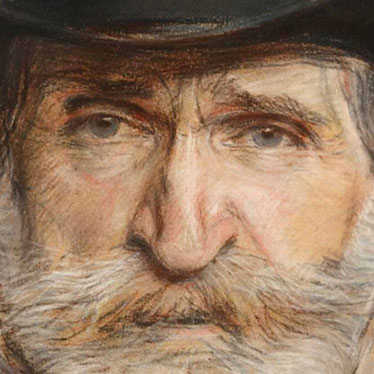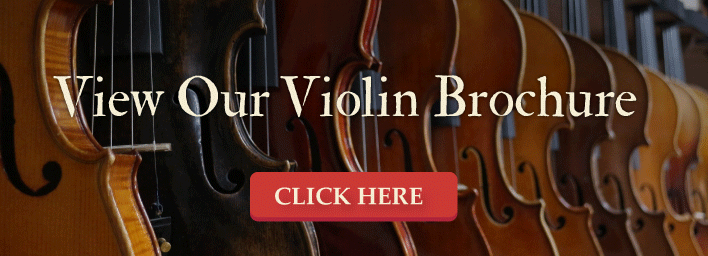
More than a century after his death, Giuseppe Verdi’s operas remain some of the world’s most popular. Even a simple search on Operabase shows performances of numerous Verdi operas all over the world: La traviata in Denmark and Colorado, Nabucco in Slovakia and Berlin, Aida in Ohio and Hong Kong.
His works are well known. Now is your chance to know more about the man.
Verdi’s Private Life
Verdi really was “born yesterday.” Really. That’s what was written in the baptismal register on October 11, 1813. However, since it was common at the time to mark the start of the day at sunset rather than sunrise, historians aren’t sure if Verdi was born on the ninth or tenth.
This great Italian composer was also born in France – sort of. He was born in the Italian town of Le Roncole near the northern Italian city of Parma. In 1813, the town was in the Duchy of Parma, which had recently been annexed by the First French Empire.
The timing and location of his death are less complicated. Verdi died on January 27, 1901 in Milan, Italy.
His parents were Carlo and Luigia, and they managed an inn. As a middle-class family, they could have young Giuseppe well educated.
Verdi married a singing and piano student of his, Margherita Barezzi, in 1836. They had two children, both of whom died in infancy. Margherita died in 1840. A few years later, Verdi was back in Parma overseeing a production of Nabucco where it’s believed he started his relationship with soprano Giuseppina Strepponi, whom he eventually married.
Verdi’s Music Career
Verdi scored his first paying music gig at the age of eight years old. His schoolmaster, music teacher and church organist died, so Verdi took over his organist duties. By the time he was 12 years old, Verdi was studying music, composition, Latin, the humanities and rhetoric.
When he was 19 years old, he applied to the Milan Conservatory. Despite already having a public performance of one of his works, an eight-movement cantata when he was only 15, the Conservatory rejected him for being too young.
His earliest music job as an adult was as a conductor at the Philharmonic Society in Busseto in 1833. His first opera, Un giorno di regno, opened at the Teatro alla Scala in 1840 to wide acclaim. His second opera didn’t do as well, but he had more successes in quick succession with Nabucco (1842) and I Lombardi (1843). From there, Verdi continuously composed popular operas over the next five decades.
He became known for departing from the traditional structure of Italian opera with Rigoletto (1851), which has no arias or finales, but is comprised entirely of duets. Verdi also had some cross-cultural experiences with his operas:
- With a commission from the Paris Opera, Verdi agreed to modify I Lombardi, an opera he based on a patriotic Italian, with a French libretto and include some ballet.
- The Egyptian government commissioned him to compose Aida to be performed in Khedivial Opera House in Cairo, which was built to celebrate the opening of the Suez Canal.
Verdi’s Politics
Verdi was actually an elected politician in 1859, when he served on a provincial council. During this time, he was appointed head of a delegation to meet with King Vittorio Emanuele. Verdi supported the Risorgimento movement in Italy, which sought to establish a single, unified Kingdom of Italy. In 1861, he was elected to the Parliament of Piedmont-Sardinia, which became the Parliament of the Kingdom of Italy after unification succeeded.
He wasn’t a very attentive politician. He did sometimes use his music for patriotic purposes, most notably with the chorus Va pensiero from Nabucco. Nabucco told the story of the Jews being conquered and exiled from Israel by the Babylonian King Nabucco. The words of Van pensiero, known as the Chorus of the Hebrew Slaves in English, spoke to the longings of the Risorgimento movement for Italy to be under the control of Italians:
O mia patria, si belle e perduta
Oh my country, so beautiful and so lost
Italians continue to sing Va pensiero as a political act even in the 21st century. In 2011, they sang it in the Teatro dell’Opera in Rome to protest cuts in the state’s arts budget. It is also the official song of a regional Italian political party, Lega Nord.
Verdi had a thing for Shakespeare
Throughout his career, Verdi kept working on operas based on Shakespeare’s plays. Yet he composed one of his masterpieces – and one of the world’s most popular operas – Otello (1887) a decade after he officially retired.
His other completed Shakespearean operas include Macbeth (1847) and Falstaff (1893), which was based on Shakespeare Merry Wives of Windsor. He also contemplated works based on King Lear, Romeo and Juliet, and The Tempest.
Oh – and Verdi couldn’t read English.


